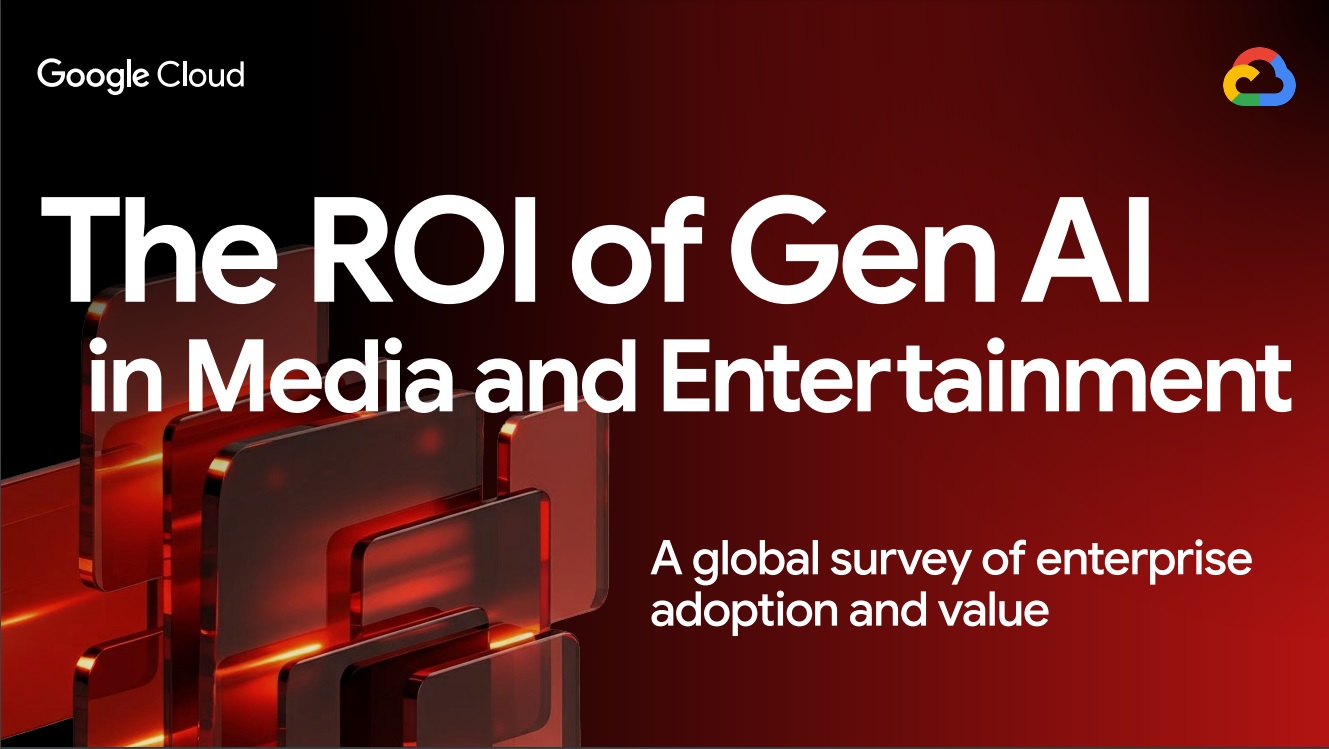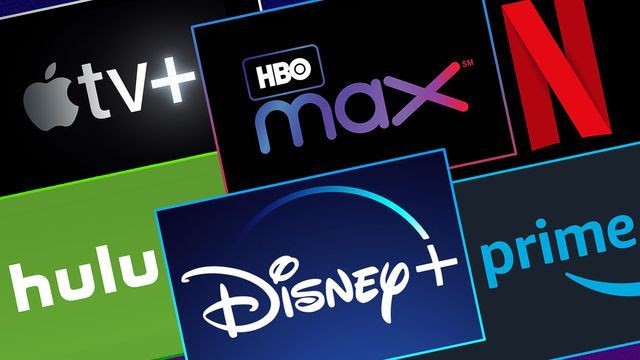New Study Finds Growing Role For Gen AI in M&E Industry
The Google report is based on the findings of a survey of 253 senior leaders of global M&E businesses

Gen AI is having a big effect on the Media & Entertainment Industry, touching everything from presenting the public with viewing options more closely aligned to their individual preferences to deriving business benefits, including higher revenue, but its role in video production lags other categories, according to a new report from Google Cloud and National Research Group.
The report, “The ROI of Gen AI in Media and Entertainment, A global survey of enterprise adoption and value,” is based on a survey of 263 senior leaders of global M&E enterprises with annual revenue of $10 million or more.
According to the report business benefits are being felt across three areas, including time to market, ROI and productivity.
Nearly two-thirds of respondents who identified where gen AI is having the greatest effects pointed to increased conversion (66%), creating new products and services (65%), improved leads and new customer acquisition as well as increased revenue (both 63%).
However, only 35% of 169 respondents answering the question reported using gen AI in the production process.
“Gen AI adoption has been much lower in production compared to customer service and marketing. This is because integrating gen AI into complex production processes might necessitate greater technical investment and a higher tolerance for disruption,” the report said.
If the speed at which Media & Entertainment businesses develop and deploy gen AI applications to meet specific use cases is an indication of the value they place upon the technology, its significance is obvious. A total of 83% reported moving a gen AI use case from idea to production within six months. The pace may be a sign of the “constant pressure” M&E organizations face to innovate as well as the availability of “user-friendly gen AI tools” capable of addressing sophisticated requirements, the report said.
Get the TV Tech Newsletter
The professional video industry's #1 source for news, trends and product and tech information. Sign up below.
Nearly three out of four M&E organization respondents using gen AI reported seeing a return on investment on at least one of their gen AI use cases, it said.
Gen AI is “emerging as a powerful tool” to tackle the challenges of better understanding audience preferences and derive new revenue streams. “Adoption of this technology in the industry is still in its early stages, but initial results are promising,” it said.
At the moment, the technology is having its greatest impact in powering targeted content recommendations, streamlining processes, such as script analysis, character development and visual effects, and optimizing ad strategies, the report said.
Gen AI is also affecting productivity. Of the 64% of M&E organizations reporting gen AI use in production saying their companies have derived increase productivity, 34% said employee productivity has at least doubled.
“This suggests that gen AI is not simply automating tasks, but fundamentally changing how work gets done—leading to substantial boosts in efficiency,” the report said.
The greatest champion advancing gen AI use at their organizations are chief technology officers (65%). Other important boosters include chief executive officers (49%), chief information officers (46%) and chief financial officers (31%), it said.
Future financial commitment to gen AI appears strong. Fifty percent of respondents said half their organization’s future AI budget will be devoted to gen AI. Twelve percent reported 75% will be allocated to the technology, the report said.
“Over the next two to three years, media and entertainment organizations plan to use gen AI to address a range of objectives, with increasing employee productivity (47%) and improving operational efficacy (46%) at the top of the list,” it said.
Global director for Media & Entertainment Albert Lai at Google has published a blog about the survey and report.
Google has published a link to the full report, which can be accessed after registering.
Phil Kurz is a contributing editor to TV Tech. He has written about TV and video technology for more than 30 years and served as editor of three leading industry magazines. He earned a Bachelor of Journalism and a Master’s Degree in Journalism from the University of Missouri-Columbia School of Journalism.

